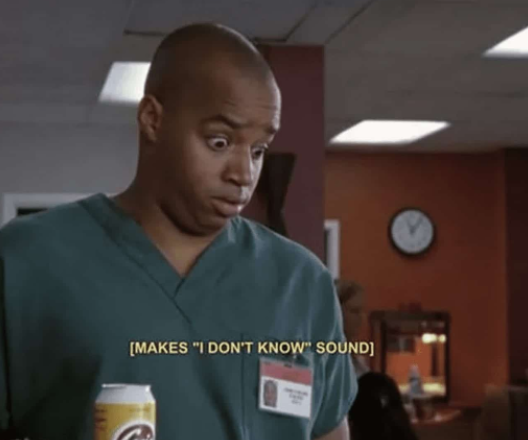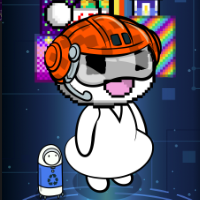- cross-posted to:
- [email protected]
- cross-posted to:
- [email protected]
as a layman: A word is a sound or collection of sounds, or a graphic representation thereof, meant to convey a concept.
your comment is a word by that definition
My comment is indeed words, yes.
Letters arranged in such a way as to convey a thought.
Letters arranged in such a way as to convey a thought.
not necessarily.
That only moves the question to what a thought is. Also: why only written language? Aren’t there spoken or signed words?
Mmmmmmmmmmmmmmmmm
Fits your definition, isn’t a word.
Aaaarfgfhfhrhhhh
Fits your definition, isn’t a word
Micro$oft
Doesn’t fit your definition, could be considered a word
@$$
Doesn’t fit your definition, could be considered a word.
Also, your definition doesn’t include spoken languages, or words in languages that don’t use letters to build words.
The first two do not fit the description, as neither is conveying a thought. Those aren’t words. They’re onomatopoeias.
Spoken words are still made up of letters, even if they’re not written down.
Just because they aren’t roman letters, does not mean they aren’t letters. Cuniform and hieroglyphs are just a different kind of letter.
The first two do not fit the description, as neither is conveying a thought. Those aren’t words. They’re onomatopoeias.
They do convey thoughts, which is why you know what they mean.
They’re not onomatopoeia, because they aren’t made to reflect sounds (though the first one reflects a sound a person would produce with their vocal tract, those aren’t usually called onomatopoeia).
Spoken words are still made up of letters, even if they’re not written down.
Spoken language came before written language. Words existed long before letters were invented. So then letters making up words can’t be the definition of words because words existed before letters existed to “form” them.
Just because they aren’t roman letters, does not mean they aren’t letters. Cuniform and hieroglyphs are just a different kind of letter.
They don’t need to be Roman letters, but many written languages don’t use letters. I’m not sure about cuneiform, but I know that not all hieroglyphs are letters. Chinese is another written language that doesn’t use letters, for example.
They do convey thoughts, which is why you know what they mean.
I’m sorry but even as a joke, this is just way too wrong. The examples given of “Mmmmmmmmmmmmmmmmm” and “Aaaarfgfhfhrhhhh” have no meaning. They are, at best, sounds. Making them onomatopoeias.
Mmmm is something that people (English-speakers?) say when something tastes good, seems appetizing, or is interesting or arousing or something. It’s not exactly a word, but it’s not an onomatopoeia.
“Aaaarfgfhfhrhhhh” would be an example of someone typing frustratedly into the keyboard (or mashing their keyboard) because something didn’t go their way. It’s an arrangement of letters to express frustration. It isn’t even necessarily a sound that anyone would vocalize. So it’s an arrangement of letters that conveys a thought but isn’t a word.
That definition could apply to a whole sentence (or novel), or a sound like “pfft.” Or it could be an initialism, a movie rating, or an analyzed string of DNA. All these and more are letters arranged in a way as to convey thought.
An analyzed string of DNA is letters arranged to convey a living creature; not a thought. 😌
Ah, well that explains away one of the examples… You must be right! (I’d argue that the analysis of DNA is a thought/type of understanding, rather than the essence of a living thing, but that quickly gets towards another linguistic argument of Sausserian structuralism vs post structuralism.)
I’m not taking any of this seriously, but if others want to continue taking it that way I’ll play along :p
What is a word: Yes.
fun little story: I once visited a lecture called “what is a word?”, and the lecturer started with a quizz presenting… well, pieces of speech and asking whether we would consider it a single word or not. Then they said that barely anyone changes their mind throughout their course, and that the answers would remain pretty much the same at the end 😅 But it was still nice to learn about alllll the theories (there are a lot)
I would argue that a definition is only as good as it explains (native) speakers’ intuition. So I would expect linguists to change their mind about what a word is as little as biologists to change their heart beat after an autonomy class.
Cool story though! Part of me wishes to learn all these theories, too. This is so niche and nerdy and useless that it sounds like a lot of fun!
For he layperson, probably correct. I’d say thay in a scientific context, the definition needs to be adapted to the research context. What are we looking at, what are we searching for ? How do we define “word” in a usable manner ? Languages are made up anyway !!
I’m afraid I don’t really have specific litterature to recommend, and I’m not quite sure where my notes went ^^’ but I will still recommend a book an categories: “birds colo(u)rs and prepositions”. Not about words per se, but about where and how we draw lines between categories. A more generic approach to the question.Ok, true. In the scientific context it’s good to know many definitions and know which one to apply in a given situation. But it’s not that the overall opinion of a linguist as a person. It’s rather than you learn not to take any of them, including your intuition, too seriously if that makes sense.
I’ll put the book on my reading list! I barely do any linguistics since university and it might be fun reading again. Thanks!
As a linguist, this is an interesting question, but a simple one. A-word is "ass.”

“Is” huh…?
Someone at work (professional office setting) asked me what “no cap” meant…
And before I knew what was happening I was 5 minutes deep talking about shooting guns randomly out windows.
I don’t know why more etymology nerds aren’t interested in slang it’s all the cool shit about language evolving except its happening like 10-100x as fast as formal language evolves.
No cap just means your bottle is going to spill
Jokes aside, etymology is a fascinating subject. At least for me and that’s not even my line of work. I just love learning about it
Xnopyt





